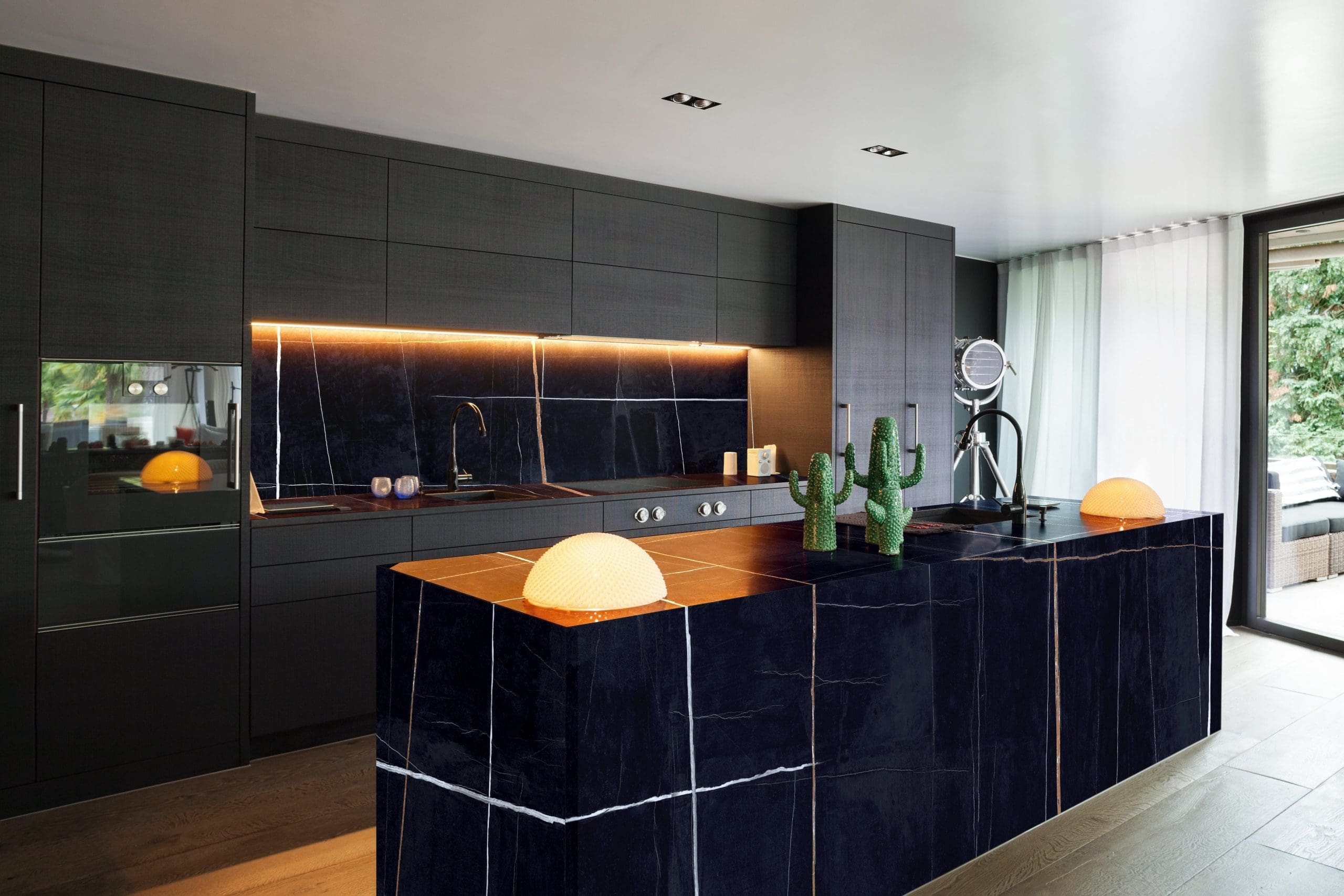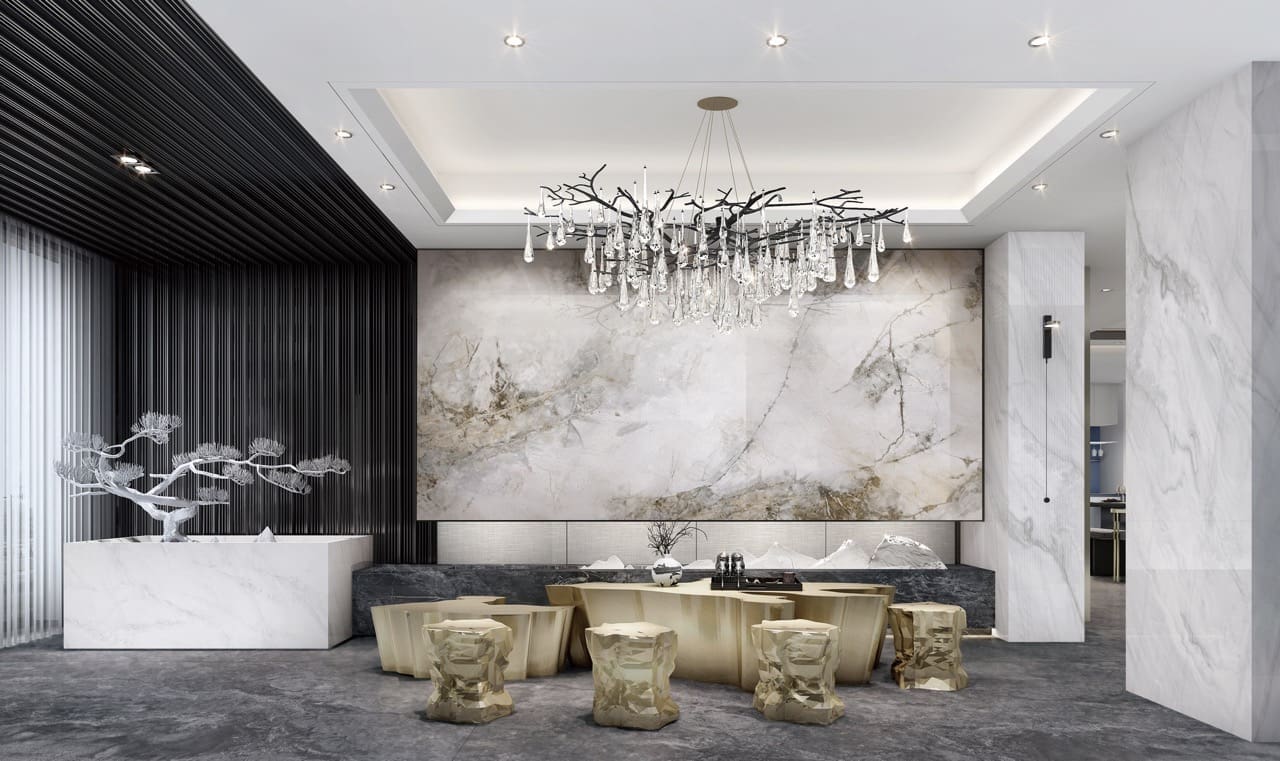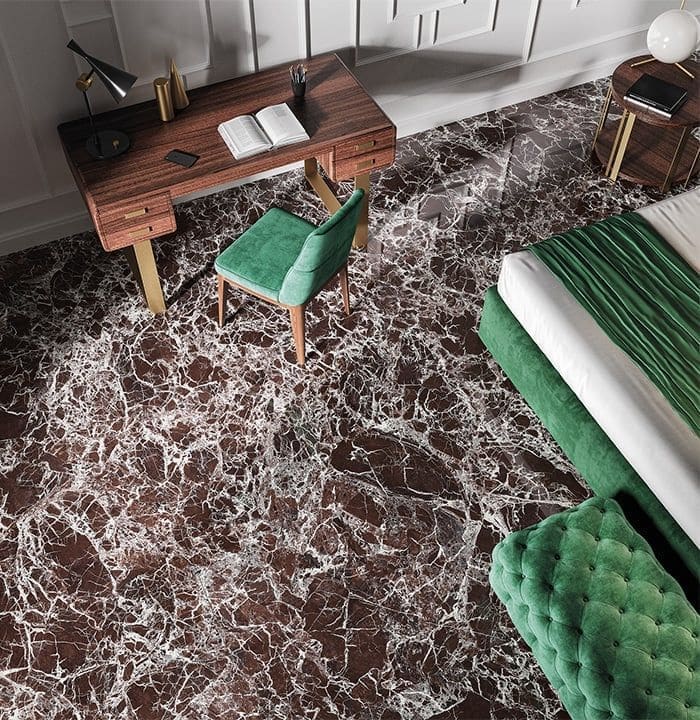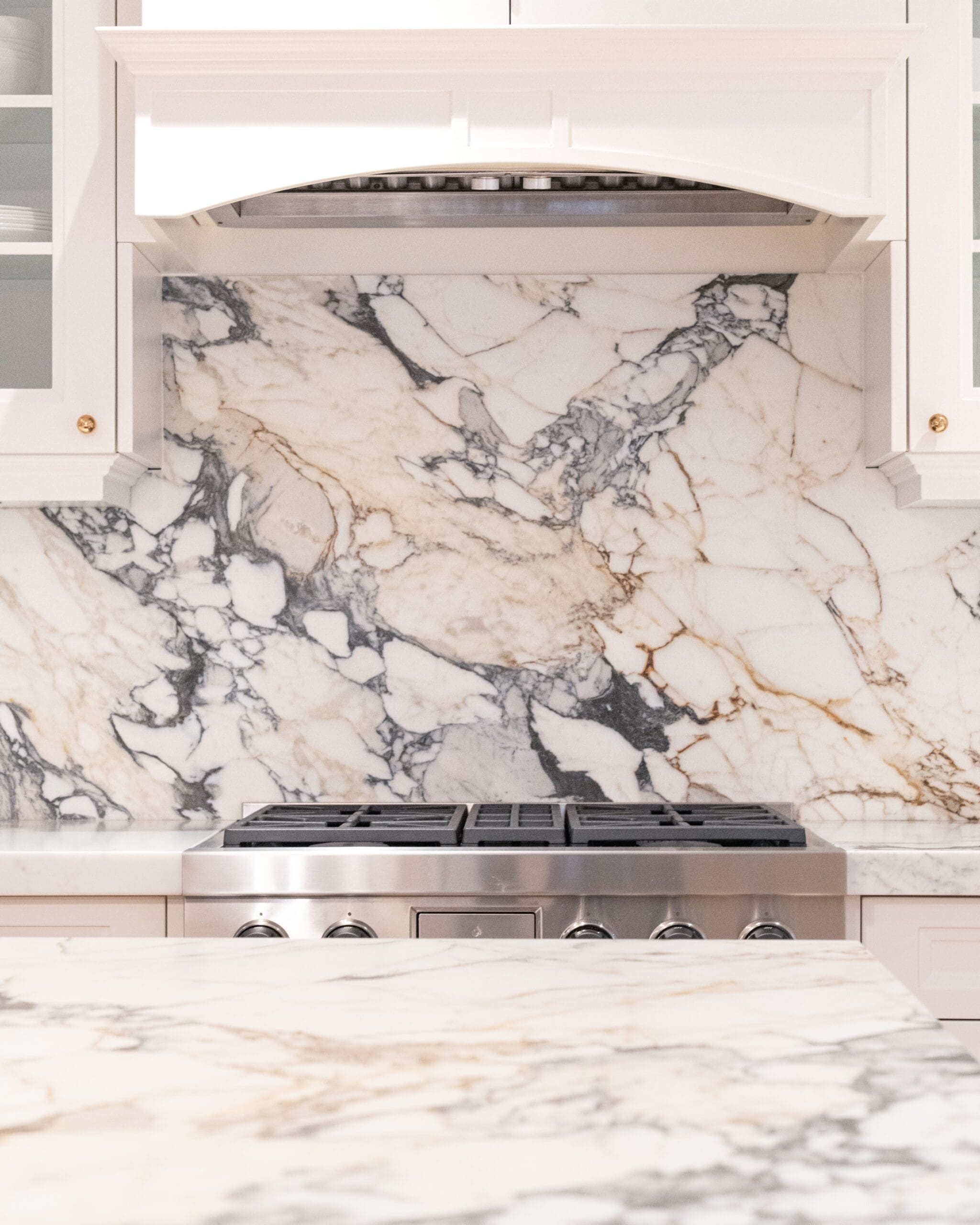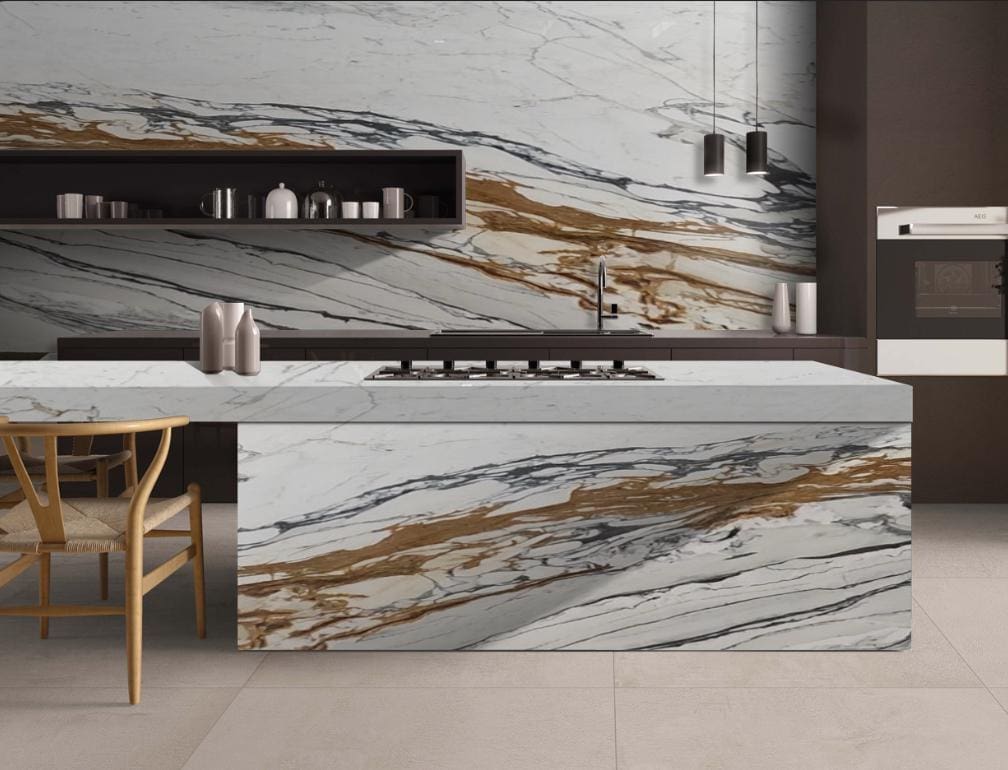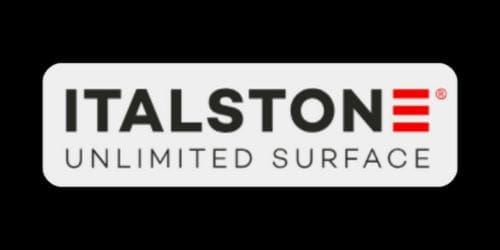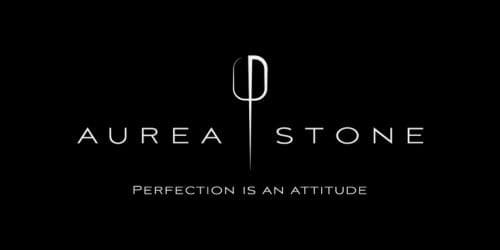In an era of ever-changing design trends, marble remains a timeless choice that continues to captivate homeowners, interior designers, and architects alike. Its unique characteristics offer:
- Unparalleled natural beauty
- Exceptional heat resistance
- Versatility in design applications
- A touch of luxury that never goes out of style
Beyond aesthetics, high-quality, well-maintained marble can also increase your home’s resale value, making it a smart investment. Selecting the right marble slab is an exciting yet important decision that requires careful consideration. This guide will walk you through the different types of marble, help you find a slab that complements your kitchen’s style, and ensure you choose one that is both stunning and durable.
Why Marble Remains a Top Choice Kitchens
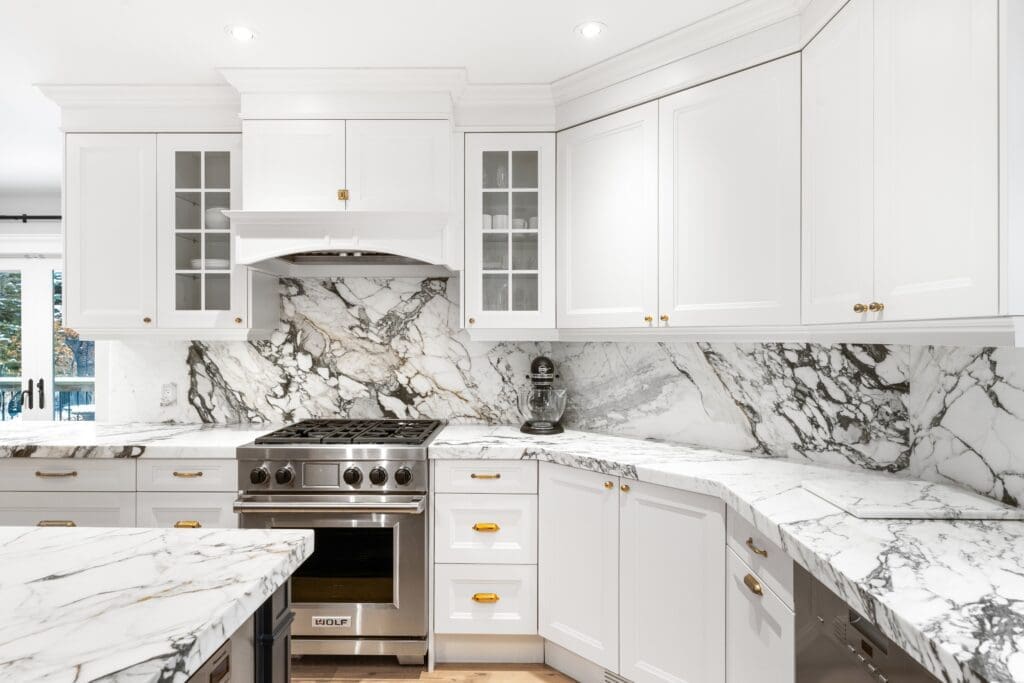
Marble has become synonymous with luxury kitchens due to its unique veining, natural elegance, and versatility. Each slab tells its own story, with patterns and colors that are impossible to replicate. Beyond aesthetics, marble is heat-resistant and works well in kitchens, particularly as countertops, islands, or backsplashes.
Benefits of Marble in the Kitchen
- Heat Resistance: Marble is naturally heat-resistant, making it ideal for use around stoves and ovens.
- Aesthetic Appeal: No two slabs are the same, providing unique, customizable designs.
- Natural Stone Durability: With proper care, marble can last a lifetime, adding both style and function to your kitchen.
Looking for the perfect marble slab for your kitchen? Visit our showroom to explore a stunning collection of premium options.
Most Popular Marbles For Kitchens
Each type of marble has distinct characteristics that influence its durability, maintenance, and cost. Here’s a look at some of the most sought-after varieties:
Most Popular White Marble Types
Calacatta Gold Marble

- Appearance: Iconic bright white background with thick, bold veining in shades of gold and grey. Its luxurious look creates a focal point in any kitchen.
- Cost: High-end, reflecting its rarity and prestige.
- Durability: Softer than other marbles; requires careful maintenance and sealing to prevent stains and scratches.
- Best For: Luxury kitchens, modern designs, and kitchen islands.
Calacatta marble originates from the Carrara region in Italy and is often considered the most prestigious marble.
Check out our post showcasing other exotic Calacatta varieties!

- Appearance: Soft grey veining on a white to greyish background. Its subtle, understated elegance works well in minimalist and classic designs.
- Cost: More affordable than Calacatta, making it a popular choice.
- Durability: Softer but less prone to staining than Calacatta. Regular sealing is essential.
- Best For: Classic, traditional kitchens, and those with a minimalist design.
Carrara marble is the most common marble type, widely used in sculptures and architecture.
Statuario Marble

- Appearance: Pristine white with dramatic grey veining that adds bold contrast and sophistication. Perfect for statement pieces like islands.
- Cost: Extremely high-end due to its rarity and premium quality.
- Durability: Similar to Calacatta; ideal for low-traffic areas or kitchens with meticulous care.
- Best For: Statement kitchens, luxury projects, and countertops that demand attention.
Not sure which marble suits your style best? Speak with our experts today to find the perfect match for your kitchen design.
Arabescato Corchia Marble

- Appearance: Luxurious white marble with soft grey veins interspersed with striking gold and beige accents. The elegant veining creates a sophisticated, polished look, perfect for high-end kitchens.
- Cost: Mid-to-high range.
- Durability: Similar to other white marbles. It requires regular sealing to protect it from staining, etching, and scratching. It’s ideal for low-traffic areas or kitchens where proper maintenance can be ensured.
- Best For: Statement countertops, backsplashes, and even luxurious bathroom vanities. Its soft, elegant pattern makes it well-suited to both contemporary and classic designs, adding a touch of opulence to any space.
White Dolomite Marble

- Appearance: Pristine white marble with delicate, understated veining and a highly reflective surface. It creates a calm and refined ambiance.
- Cost: High-End.
- Durability: More resistant and durable than average marbles.
- Best For: Modern, minimalist kitchens, and luxurious design elements.
Breccia Capraia Marble

- Appearance: Earthy hues with bold, irregular veining in tones of brown, red, and gold. Perfect for rustic or eclectic kitchens.
- Cost: Moderate; its distinctive patterns add value.
- Durability: Softer and prone to etching but manageable with proper care.
- Best For: Rustic, eclectic, or vintage-style kitchens.
Glorious White Marble
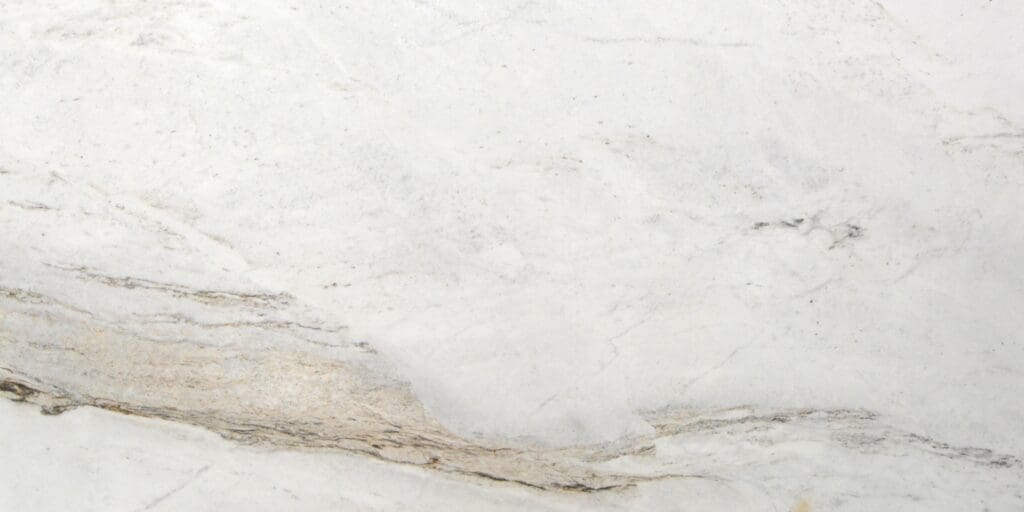
- Appearance: Delicate white base, accentuated by subtle grey and gold veins that create an elegant, flowing pattern. Ideal for both contemporary and classic designs; its warm undertones complement traditional and farmhouse-style kitchens.
- Cost: Moderate to high.
- Durability: More stain-resistant than other marbles, making it a practical choice.
- Best For: Timeless elegance with a balance of luxury and practicality.
Most Popular Black Marble Types
Nero Marquina

- Appearance: A striking black marble with sharp, white veining that creates a bold and modern aesthetic. It’s perfect for monochromatic or high-contrast designs.
- Cost: Mid-to-high range depending on the quality of veining and finish.
- Durability: Dense and less porous than lighter marbles, but sealing is still recommended for kitchens.
- Best For: Modern, contemporary kitchens and high-contrast design.

Choose Nero Marquina polished finish for a striking, high-gloss appearance that reflects light beautifully, or opt for a honed finish for a softer, more understated elegance with a velvety matte texture.
Sahara Noir

- Appearance: Deep black with intricate gold and white veining that resembles artistic brushstrokes. It’s ideal for dramatic statement kitchens.
- Cost: High-end, comparable to Calacatta and Statuario.
- Durability: Slightly more durable than white marbles but still requires sealing and care to maintain its beauty.
- Best For: Bold, luxurious designs and statement pieces.
We carry Sahara Noir in polished and honed finish.

Thinking of a bold and dramatic kitchen design? Discover the richness of black marbles in our showroom.
What to Consider When Choosing a Marble Slab

1. Appearance and Design Preferences
Do you prefer dramatic or subtle veining? Arabescato, Calacatta and Statuario offer bold patterns, while Carrara and White Dolomite are more understated.
Light vs. dark tones: Bright marbles like White Dolomite and Calacatta brighten a space, while Nero Marquina and Sahara Noir create depth and drama.
2. Functionality and Lifestyle
- For busy kitchens, consider marbles that are denser and more resistant to staining, such as White Dolomite or Nero Marquina.
- If your kitchen is more decorative, luxurious marbles like Calacatta or Sahara Noir are ideal.
3. Budget
Your budget will influence your choices. Carrara and Nero Marquina are affordable, while exotic options like Calacatta, Statuario, and Sahara Noir are premium investments.
4. Maintenance Needs
All marble requires sealing to prevent stains and etching. Polished finishes are elegant but show scratches more easily, while honed finishes are matte and better for hiding imperfections.
Need advice on marble maintenance? Get our guide on marble care and maintenance tips.
Matching Marble with Kitchen Design Elements

- Pairing with Cabinetry
- White Cabinets: Pair with bold marbles like Calacatta, Statuario, or Nero Marquina for striking contrast.
- Dark Cabinets: Light-colored marbles like Carrara or White Dolomite create balance and prevent the space from feeling too heavy.
- Wood Cabinets: Warm-toned marbles like Breccia enhance the natural texture of wood.
- Coordinating with Backsplashes
- Full-Slab Backsplash: For a seamless, high-end look, continue the same marble slab up the wall.
- Contrasting Backsplash: Pair subtle countertops with a bold marble backsplash, such as Sahara Noir or Arabescato.
- Highlighting Design Features
- Use bold marbles like Nero Marquina or Calacatta for kitchen islands to make them the centerpiece.
- Combine two types of marble for a two-toned kitchen design, such as pairing White Dolomite with Sahara Noir.
Transform your kitchen into a masterpiece. Browse our premium marble collection and bring your vision to life!
Marble Kitchen Countertop Design Ideas

- Minimalist Modern: Pair Statuario marble countertops with sleek, handle-less white cabinetry and stainless steel appliances.
- Rustic Elegance: Use Breccia marble for countertops and pair with wood cabinets for a warm, inviting feel.
- Monochrome Drama: Create a dramatic space with Nero Marquina countertops and matching black cabinetry.
Ready to upgrade your kitchen? Visit our showroom to see our premium collection in person!
Conclusion
Choosing the perfect marble for your kitchen is a significant investment, blending style, functionality, and maintenance considerations. From the dramatic veining of Nero Marquina and Sahara Noir to the classic elegance of Calacatta and Carrara, we offer an exquisite selection to create your dream kitchen. These contents provide a helpful overview, but because every kitchen is unique, personalized advice is invaluable. Our marble professionals can guide you through the selection process, ensuring the perfect match for your vision.
Visit our showroom for a free consultation and explore our stunning slabs firsthand – let’s craft your kitchen masterpiece.
Frequently Asked Questions (FAQ)
What’s the best marble for a statement kitchen?
For white marble, Calacatta, and Statuario stand out with their bold veining and dramatic patterns.
How can I make marble last longer in my kitchen?
Seal it regularly, clean spills immediately, and use cutting boards and trivets to avoid scratches and etching.
What is the difference between polished and honed marble finishes?
Polished and honed finishes offer different aesthetics and performance:
- Polished: Reflective and shiny surface, easier to clean but more prone to scratches and visible watermarks.
- Honed: Matte or satin finish, more resistant to showing fingerprints and scratches but may require more frequent sealing to prevent stains.
- The choice depends on your aesthetic preferences and maintenance tolerance.
How do I choose the right marble for my kitchen?
Selecting the ideal marble for your kitchen involves considering several key factors:
- Usage frequency: High-traffic kitchens require more durable options.
- Aesthetic preferences: Choose a marble that complements your style—subtle veining for a classic look or bold patterns for a statement.
- Maintenance commitment: Some marbles require more care; choose based on how much upkeep you’re prepared for.
- Budget: Prices can vary significantly, so set a realistic budget.
- Existing kitchen design: Consider how the marble will integrate with cabinets, flooring, and other elements.
- Durability needs: If you need something more resilient, opt for marbles like Calacatta or Statuario for their strength.
What is the most affordable marble for kitchen countertops?
Carrara marble is one of the most budget-friendly options, typically priced between $60 and $120 per square foot. It offers a timeless aesthetic with soft veining, making it versatile for a range of styles.
How much do marble countertops typically cost?
Marble countertop pricing varies depending on the quality and type:
- Budget options: $60–$120 per sq/ft (e.g., Bianco Carrara)
- Mid-range: $100–$200 per sq/ft (e.g., Nero Marquina)
- Luxury options: $180–$300 per sq/ft (e.g., Calacatta, Statuario)
- Installation costs: Typically an additional $30–$50 per sq/ft, depending on complexity and location.
How often should I seal my marble countertops?
Sealing frequency depends on usage and conditions:
- General recommendation: Every 6–12 months to maintain protection.
- High-traffic kitchens: Consider sealing every 6 months to ensure lasting durability.
- Low-traffic areas: Annual sealing may suffice.
- Always consult with a professional for advice tailored to your kitchen’s needs.
Can marble countertops be repaired if damaged?
Yes, marble is repairable in most cases:
- Minor scratches: Can often be buffed out by a professional.
- Chips: Can be filled with color-matched epoxy for a seamless look.
- Deep scratches: May require professional restoration to restore the surface.
- Severe damage: Depending on the extent, full or partial slab replacement may be necessary.
What cleaning products are safe for marble?
Only use products specifically designed for marble care:
- Recommended: pH-neutral or stone-safe cleaners designed for marble.
- Avoid: Acidic cleaners (like vinegar or lemon juice), which can damage the stone.
- Never use: Abrasive scrubbers or harsh chemicals, as they can scratch or degrade the surface.
- Best practice: Use soft cloths and gentle, specialized stone cleaners for daily maintenance.
Are marble countertops heat-resistant?
Marble is naturally heat-resistant but should be used with care:
- Can withstand moderate heat, making it suitable for light cooking tasks.
- Best practice: Always use trivets or hot pads to protect the surface from direct heat.
- Prolonged exposure to extreme heat can cause discoloration or cracking.
How scratch-resistant are marble countertops?
Marble is relatively soft compared to other stones:
- Mohs hardness scale: Ranges between 3–4, which makes it more prone to scratches than harder stones like granite (Mohs scale 6–7).
- Prevention: Always use cutting boards and avoid dragging heavy items across the surface.
- Exercise caution during food preparation to preserve the finish.
Will marble countertops stain easily?
Marble is porous and can stain if not properly cared for:
- Unsealed marble: Highly vulnerable to staining from spills, especially from acidic or colored liquids.
- Tip: Clean spills immediately to avoid stains.
- Use high-quality sealants to provide an additional layer of protection.
Can I use marble in a modern kitchen design?
Absolutely! Marble complements various design aesthetics:
- Modern kitchens: Opt for sleek marbles like Statuario or Nero Marquina for bold, contemporary appeal.
- Minimalist designs: Choose subtle options like Glorious White, Absolute White, or Carrara for a clean, crisp look.
- Statement kitchens: Bold Calacatta varieties create a striking focal point.
- Rustic kitchens: Go for marbles with warm tones, such as Breccia Capraia, to balance the space.
How do I match marble with my kitchen cabinets?
- White cabinets: Opt for bold, luxurious marbles like Calacatta for contrast.
- Dark cabinets: Lighter marbles like Carrara or Absolute White create an elegant and balanced effect.
- Wood cabinets: Warm-toned marbles like Breccia Capraia or Viola Altissimo Honed will complement the natural tones of wood for a cozy, inviting look.
Are marble countertops hygienic?
When properly maintained, marble can be hygienic:
- Sealed marble: Becomes non-porous, preventing the growth of bacteria.
- Cleaning: Regular cleaning with stone-safe disinfectants ensures a clean, hygienic surface.
- Tip: Maintain the sealant and clean spills promptly to preserve hygiene.
Can marble be used for kitchen islands?
Yes, marble is an excellent choice for kitchen islands:
- Aesthetic appeal: Marble adds a luxurious touch, perfect for making a bold statement.
- Durability considerations: Choose more durable varieties for high-use areas.
- Maintenance: Be mindful of usage and seal regularly to maintain its appearance.
- Ideal for both functional and decorative islands.
How long do marble countertops last?
With proper care, marble countertops can last for 20–30 years:
- Factors: Durability depends on maintenance, the quality of installation, and frequency of use.
- Maintenance: Regular sealing and cleaning can extend the lifespan of your countertops.
Is marble a good choice for outdoor kitchens?
Marble is generally not recommended for outdoor kitchens due to its porous nature and sensitivity to the elements:
- Exposure to extreme temperatures, moisture, and UV rays can cause marble to discolor or degrade over time.
- If used outdoors, marble needs to be sealed regularly and may require more maintenance.
- Opt for harder stones like granite or porcelain for outdoor applications.
Does marble require more maintenance than granite?
Yes, marble generally requires more maintenance than granite:
- Marble is softer and more porous, which means it can stain and scratch more easily.
- Granite is more durable and resistant to stains, scratches, and heat.
- While marble offers a unique and luxurious aesthetic, granite is often preferred for high-traffic kitchens due to its lower maintenance demands.
How can I prevent my marble countertops from yellowing or discoloring?
Marble can discolor due to heat, staining agents, or improper maintenance:
- Regularly seal your marble to protect it from stains and moisture.
- Clean up spills immediately, especially from acidic substances like wine, vinegar, and coffee.
- Avoid placing hot pots or pans directly on the surface, as extreme heat can cause discoloration.

